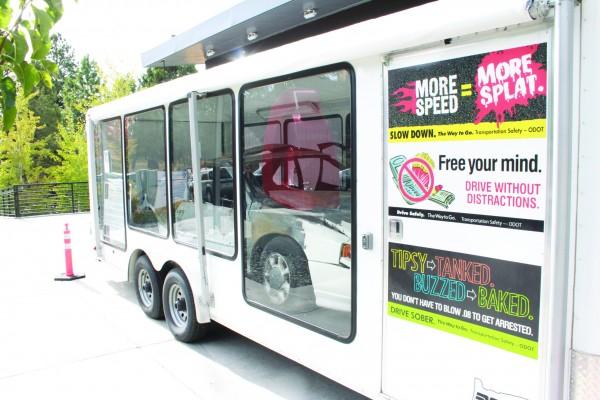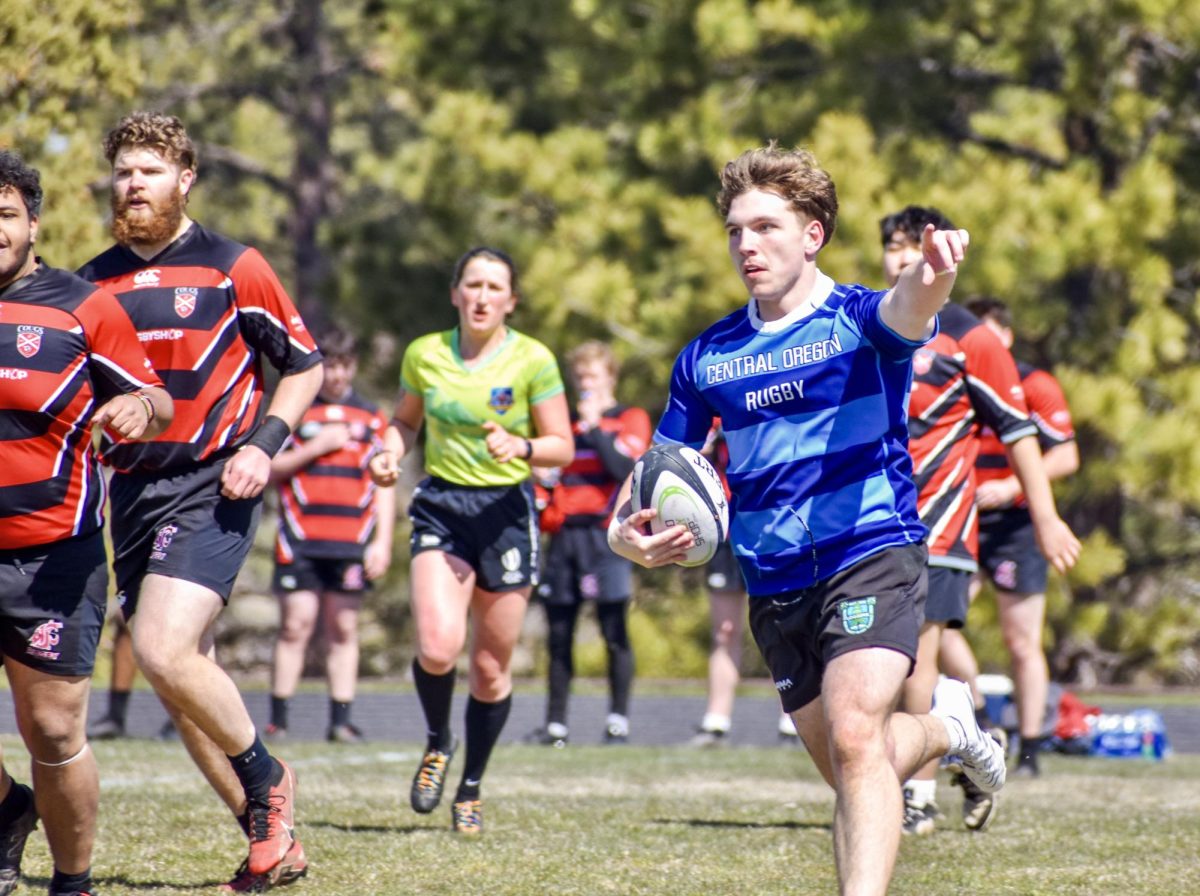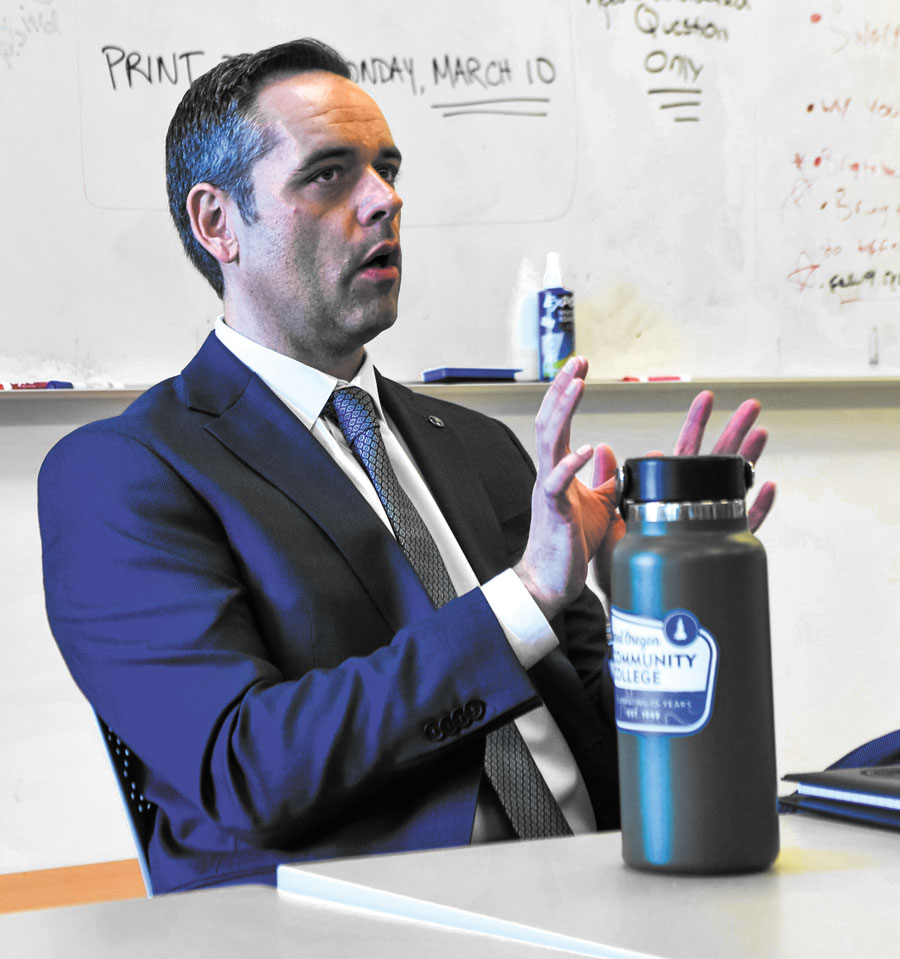[portfolio_slideshow id=12500]
A woman parties with her friends and dies from an alcohol overdose. Another woman drives drunk and ends up in a car crash, burning her hands so badly she has her fingers amputated and burning off her nose, eyelids, and lips. These are the examples the National Collegiate Alcohol Awareness Week on display on, Oct. 23, during an event hosted at Central Oregon Community College.
NCAAW started on, Oct. 19, and ended on Oct. 25. The purpose of the NCAAW is to raise awareness the dangers of alcohol and what happens when it’s not used responsibly.
The National Institute on Alcohol Abuse and Alcohol Awareness reported that 80 percent of college students admit to drinking and approximately 3.3 million students have driven while under the influence. It is estimated that 19 percent of college aged students suffer a dependency on alcohol, but only five percent get help.
At COCC, during the week, a car that was involved in a fatality car accident involving driving under the influence of alcohol sat in front of the Campus Center Building.
During the event, put on by Campus Public Safety, participants were able to perform field sobriety tests while wearing beer goggles. The goggles simulated the vision of an individual who is over the .08 legal blood alcohol limit for driving. During the field sobriety tests, which officers typically give drivers who show signs of being intoxicated, participants were asked to walk heel-to-toe down a line and then stand on one foot and count to 25.
Don Doughty, a Campus Public Safety officer at COCC has seen his “fair share” of alcohol related incidents.
“There’s certainly a number of incidents each year involving alcohol, whether it be minors in possession of alcohol, up through alcohol abuse, and also other alcohol related calls, such as DUI’s and disorderly subjects,” Doughty said.
Although students bringing alcohol to campus or being intoxicated on college property is not a frequent occurrence, Doughty reported that it happens at “at least a few times a month.”
For those who have brought alcohol on campus the consequences range from “a written or verbal warning, a student conduct hearing or even suspension from classes,” according to Doughty.
During the event in Wille Hall, there were non-alcoholic “mocktails” available for students. Upon entering the room, students were given a paper card that they wrote their name down on and had pictures of cocktails on the bottom. Every time the person got a mocktail, the picture was stamped, and at the end of the event when they turned their card in, their supposed “blood alcohol” level would be calculated.
The NCAAW hopes to promote smarter and safer drinking in college-aged students, or no drinking at all and, according to the organization, peer education is one of the best ways to accomplish that mission.
Elliot Hansell | The Broadside
(Contact: [email protected])








